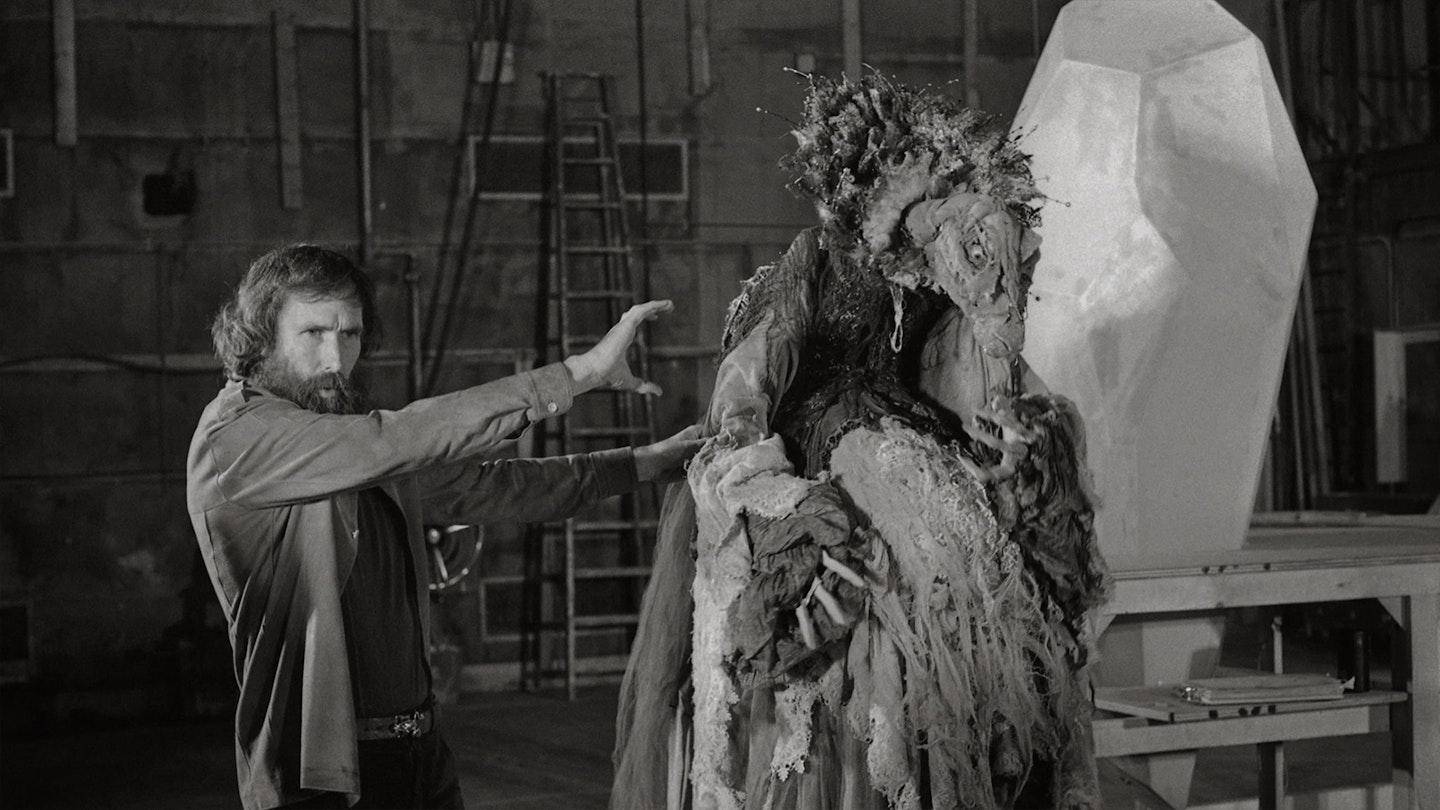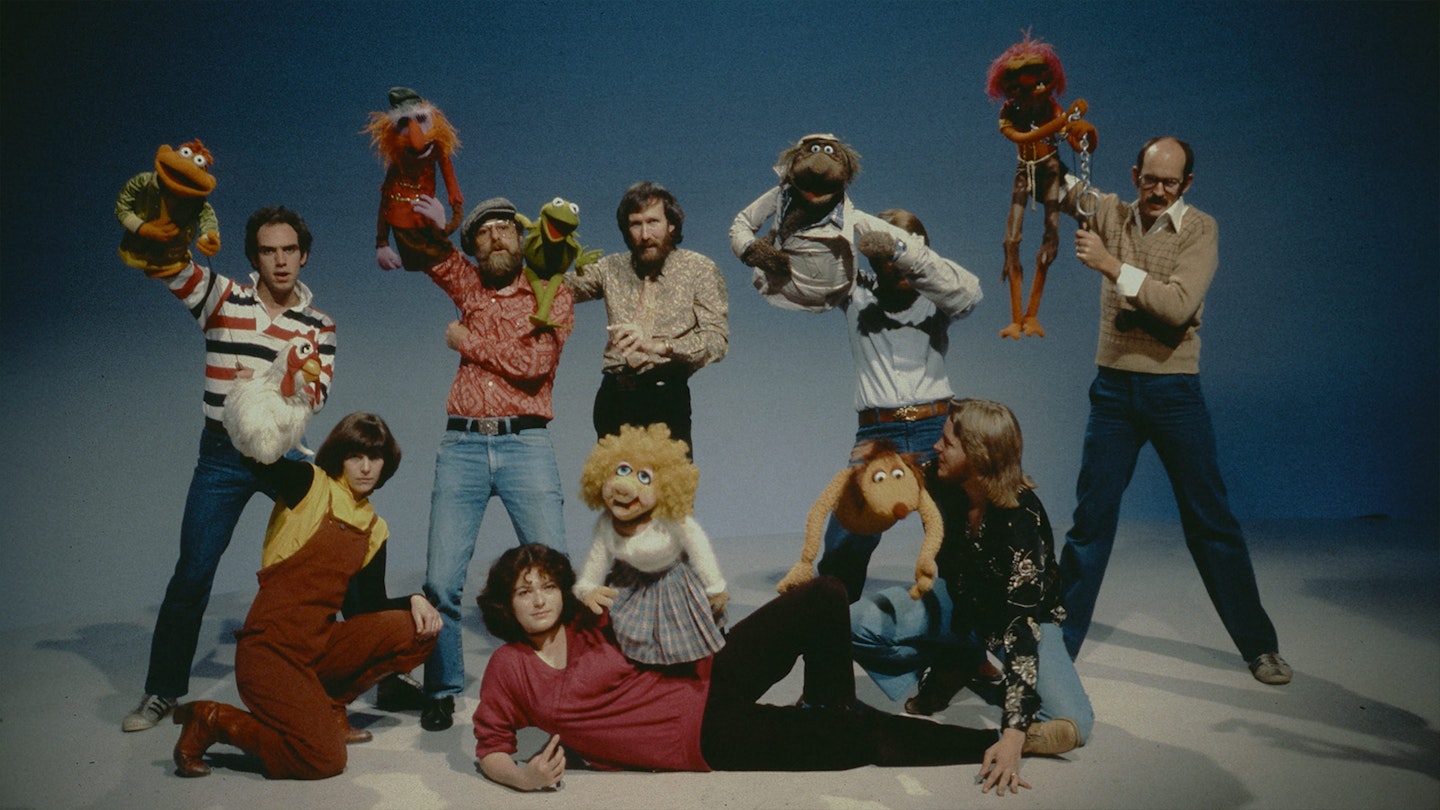Everyone loves the Muppets. That is simply a truism in life, for anyone with a working pulse and a healthy joy gland. And so therefore everyone loves Jim Henson, the godlike creator/inventor/father figure of the whole Muppet project, whose creations — the colourful ensemble of goofy, absurdist, felt-based marionette-puppets — have become a beloved staple of film and television for seven decades.
This is a lovely feature-length documentary portrait of the Muppet man, as gentle and warm-hearted as the legend himself, if not exactly challenging or overly probing. It comes from director Ron Howard, these days as much a documentarian as anything else (in the last decade he has made roughly as many nonfictional films as he has fiction). Howard gives the piece some sparky, peppy visuals, via animated flourishes — Henson’s personal sketch book comes to life at one point — and a visual backdrop for its talking heads nodding to The Cube, a 1969 experimental short directed by Henson. Beyond that, though, it follows a fairly conventional cradle-to-grave, greatest-hits rundown of Henson’s life and times.

Which is perfectly acceptable when the subject matter is so wholesome and affable. Archive footage and talking-heads interviewees portray Henson as a quiet, friendly man who nonetheless had a “superhuman drive”, bursting with boundless creativity, and a shyness that betrayed a “rich inner life”, as Frank Oz, one of his closest collaborators, puts it.
It’s that feeling of love and joy, ever-present in Henson’s work and life, that seeps nicely into Howard’s film
For Muppet-maniacs, much of the ground covered here will be familiar, especially given a lot of the interviews are drawn from earlier documentaries. But there's much to enjoy, including a wonderfully surreal appearance on unaired talk-show pilot The Orson Welles Show, in which the legendary director of Citizen Kane, in the presence of Kermit and Fozzie, intones to the audience with grave seriousness: “We may neglect to notice that Muppetry is also an art.”

The truly fun stuff is seeing that art evolve, from scrappy handmade bits of felt — Kermit was originally made from Henson’s mother’s coat; Rowlf was a basketball cut in half — to the highly advanced radio-controlled animatronics on Labyrinth. It’s also fascinating to see the tone shift: early Muppets were surprisingly violent (in a 1960s meat commercial, one Muppet shoots another in the head for being a vegetarian), while the Muppets’ most successful venture would be the long-running children’s show Sesame Street. (That show is never actually introduced by name in this film — so ubiquitous and well-known in the US, it presumably needs no introduction.)
Cramming several decades into a couple of hours, there are some areas that feel under-served. Henson’s wife and sometime creative partner Jane Henson perhaps does not get her due here; in one particularly eyebrow-raising moment, we hear archive footage of her describing, during a pregnancy, “Jim felt that I was no longer dependable”, with her appearing to have been duly shuffled out of the company. The film does acknowledge that Henson had “traditional expectations” of a marriage, as one of his daughters puts it, which led to the couple eventually splitting. But their children — nearly all of whom went into the family business — speak fondly here of both parents, and it is clear theirs was a loving household.
It’s that feeling of love and joy, ever-present in Henson’s work and life, that seeps nicely into Howard’s film, just about replicating the “culture of affectionate anarchy” (as Frank Oz puts it) that Henson loved to foster. The slightly insane sight of Big Bird singing ‘It’s Not Easy Being Green’ at Henson’s funeral (he died in 1990 aged just 53) will, if you do indeed have a pulse, leave you with happy tears — the kind only the Muppets can generate.
